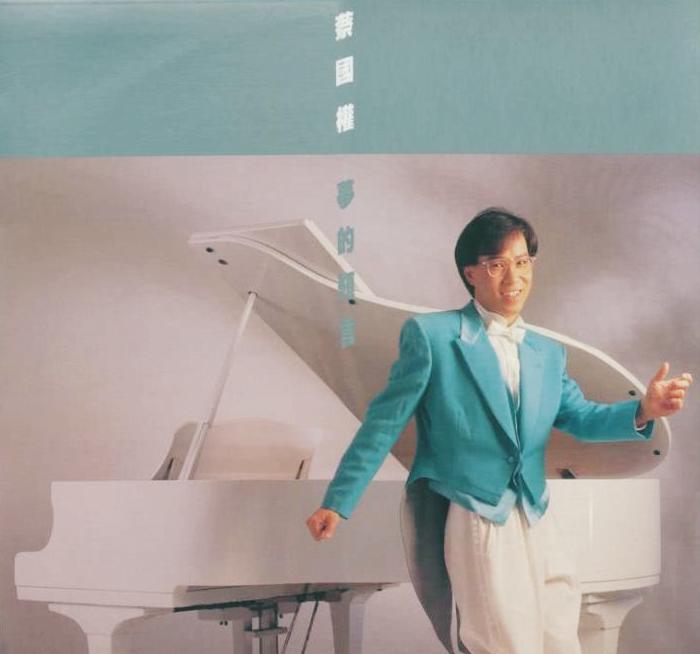In the fiercest era of Tan Zhang's hegemony, a late-blooming singer released his first album with great courage, and soon became a heavenly king-level singer in the eighties, he was Cai Guoquan.
This former singer is rarely mentioned now. In fact, compared with Tan Yonglin and Zhang Guorong at the peak, Cai Guoquan's songs did not fall behind in terms of audibility and singability.
More crucially, in an era when everyone loved to cover koji Tamaki and Miyuki Nakajima (there is a saying that Miyuki Nakajima fed most of the Hong Kong music scene), Choi Kwok-kuen insisted on taking the original path, and he was a true singer-songwriter in the early Hong Kong music scene.

The older generation of Cantonese fans can easily say his long list of masterpieces: "Don't Decorate Your Dreams", "Go Down the River", "Providence", "Cold and Proud like Ice", "The Last Ferry", "Grass in the Wind", "Who Is In the Dream", "Needle under the sea", "Walking with Your Hands", "Heartless Fast Talk", "Breaking Through the Waves"...
The beauty of any of the songs in this song is the pinnacle of Cantonese songs. Even now it doesn't look outdated. Most of these works are composed by Cai Guoquan himself.
It is no exaggeration to say that in the Hong Kong music scene in the 1980s, Cai Guoquan was one of the very few figures who became a big man in the music industry by singing original works. In terms of the beauty of the song and the lyricism of his voice, he is even better than Chen Baiqiang.
Some people describe Cai Guoquan's music as having a strong bookish flavor. He writes lyrics with his left hand and composes music with his right hand, and the temperament of the song complements each other, always with a strong classical beauty. Delicate and gentle, tender and sweet.
This style of music is extinct in today's Chinese pop music scene. The Chinese songs that became popular later actually no longer have such a pure beauty.
This beauty fits the traditional musical culture, with a literati poetic atmosphere, not only belongs to the category of pop music, but also different from popular songs cloaked in ancient styles.
For example, the two classic songs "Don't Decorate Your Dreams" and "Down the Current", even if the vocals are removed and played with bamboo flutes or pipa, there is no sense of violation.
You know, the usual pop songs, if they are performed with instrumental music from beginning to end, will seem too bland. Even in the vast majority of Chinoiserie songs, ethnic instruments appear only in the prelude, interlude or accompaniment as a finishing touch in the arrangement.
In that era when the original power was still very young, Cai Guoquan's creative talent was extremely dazzling in the entire Chinese music scene. But such a talented singer-songwriter retreated into the background very early. In fact, his peak lasted only a few short years.
By the end of the 1990s, he felt like he had used up all his creative inspiration. At that time, the Chinese music scene actually had no place for him.
In 2002, Cai Guoquan decided to make a comeback. Then, just when the fans were waiting for it, he had a car accident in Dongguan, leaving serious sequelae, not only atrophy of the cerebellum, but also paralysis of the lower body, and could only spend the rest of his life in a wheelchair.
At that time, Tam Wing Lin helped him hold a concert. Cai Guoquan, who is now in the nursing home, will also have fans to visit him.
If you want to choose a prince of love songs in the Hong Kong music scene in the 1980s, it must be Cai Guoquan. His love songs, because of their delicate and elegant classical meaning, have the poetic temperament that is lacking in popular songs today. His singing voice not only has a delicate sense of age, but also transcends the shackles of time, and is timeless and long.
——END——
Follow the sounds that follow, listen to global music, read dry goods reviews